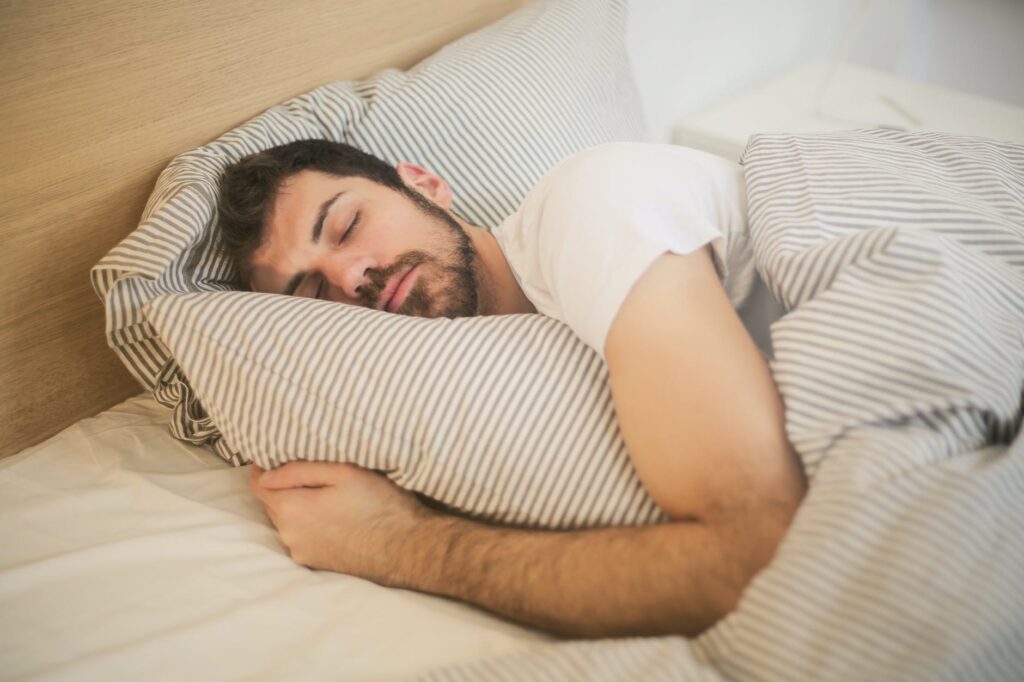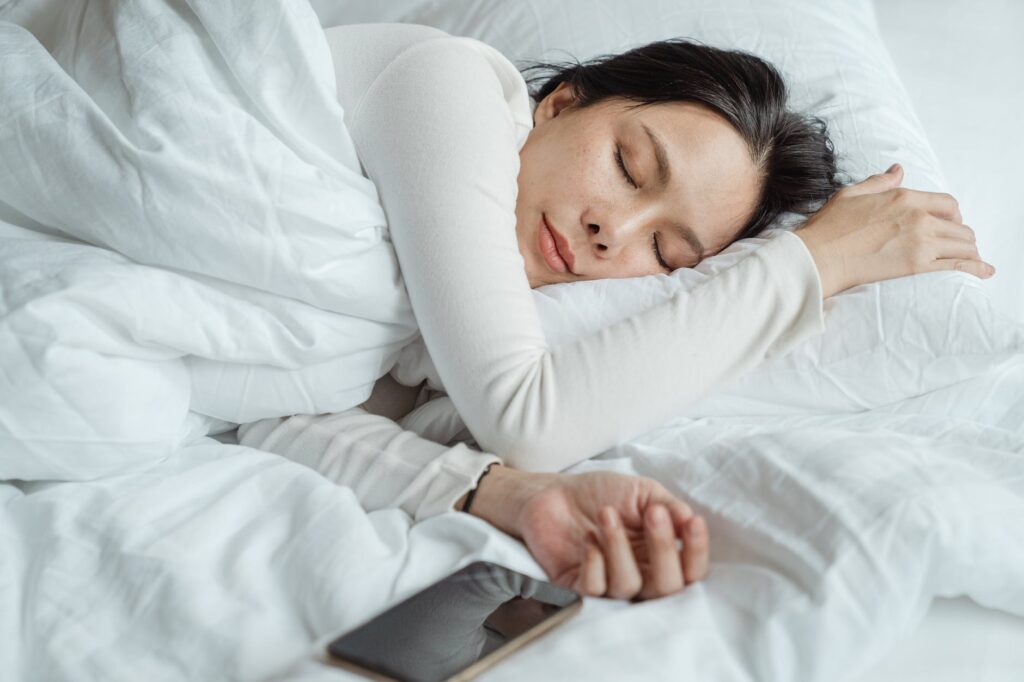When it comes to restless nights, one of the most prevalent issues is that people cannot turn their thoughts off. There is scientific proof that if our brainwave activity is too high, we will be physiologically unable to attain the rest that our bodies require to recuperate and repair themselves overnight.
Fortunately, there is a way to switch off your mind and relax your body in order to fall asleep soundly. Proper breathing techniques are a simple and efficient way to relieve stress. Proper breathing is much better for your body and mind. Let’s look at how proper breathing can help you live a happier, healthier life, eventually curing insomnia.
Calms The Nervous System
When you practice proper breathing techniques for sleep, your brain receives a signal that it is time to rest and unwind. You’re instructing your brain to relax, which has a cascading impact throughout your body. The rest of your body will automatically follow your brain’s command for relaxation and sleepiness.
Your pulse rate slows down, and your breathing slows down when you practice breathing exercises before going to bed. All of this is the body’s natural response to relaxation as a result of deep breathing. You’ll find it easier to fall asleep with improved feelings of calm.
Click here to know about the best breathing technique for better sleep at night.

Mindfulness
The mindfulness effects of correct breathing before sleep are one of the significant advantages. After a long day of school or work, your brain is likely to be packed and busy.
When you should be trying to sleep, you may rehash conversations or ponder alternative possibilities. If you have a persistent problem that bothers you or makes you concerned, such as an upcoming exam, this can impede your brain from totally relaxing.
Your brain is forced to focus on controlling your breath rather than the jumble of your thoughts when you utilize effective breathing techniques for insomnia. You can attain a level of relaxation much faster and fall asleep with ease if you quiet the commotion in your head.
Reduces Blood Pressure
Your heart rate can increase when you take shallow, irregular breaths. You might even struggle with a quick and shifting pulse instead of a calm, consistent heart rate.
The greater the pressure on surrounding arteries and veins, the faster your heart beats. When your heart rate drops, your blood pressure usually drops as well.
Proper breathing practices may aid in the reduction of overall blood pressure, thereby improving cardiovascular health. Improved circulation is usually a good thing because it is necessary for living. Improved cardiovascular health also implies that you will sleep better at night.

Reduces Anxiety
Anxiety can exacerbate insomnia, but how might simple breathing exercises help?
Anxiety is something that almost everyone goes through at some point in their lives. It’s frequently described as a sense of impending doom and anxiety, with little logical support.
While high-quality anxiety therapy is an excellent way to deal with life-altering anxiety, it isn’t the only therapeutic option. Proper breathing techniques, after all, are a great coping mechanism. You can also use www.breathwrk.com app that gives you a guided breathing technique to reduce your stress.
When you can’t make an appointment with your therapist or feel anxiety symptoms starting to appear, deep breathing can help you stay calm and sensible.
Proper breathing practices for anxiety alleviation that work the best focus on holding lengthier exhales and inhales. Proper breathing practices have numerous anxiety-relieving effects that cannot be emphasized.
Techniques requiring the use of your diaphragm are also beneficial. It is evident that when you feel less anxious, you will be able to sleep better at night. A calm mind helps cure insomnia.
Reduces Stress
Do you know what causes stress? Stressors are external factors that cause people to feel stressed. Stress, on the other hand, is a sense and an emotion that comes from within.
Our forefathers had to endure chaotic and dangerous situations in the primordial era. Surviving daily meant outrunning hungry predators and avoiding environmental risks.
As a result, our bodies evolved a sophisticated stress response to assist us in becoming faster, bolder, and more capable in times of extreme stress. The fight-or-flight reaction is a common name for this stress response.
Modern hazards, on the other hand, are not the same as those of the past. You can’t evade an enraged boss or smash your way out of traffic.
There is no safe method for the chemicals and hormones created during the human stress reaction to express themselves. Proper breathing, regular exercise, and a nutritious diet, on the other hand, can assist decrease tension and so aid in the gradual cure of insomnia.

Relaxes The Body And Mind
You’ll sense tension release and an overall relaxing impact as you start breathing deeply. If you wear a health tracker, you may even notice your heartbeat normalizing and your pulse dropping. A breathing exercise for sleep is an excellent option if you’re having difficulties sleeping.
This relaxing impact also causes a relaxation response, which helps you fall asleep faster when it’s time to go to bed. You’ll notice that you’re waking up less frequently when sleeping. Improved blood oxygen levels also promote metabolism, giving you the energy boost you need before starting your day or exercising
Those who practice attentive deep breathing regularly, such as Buteyko breathing, experience relief from anxiety, everyday stress, depression, post-traumatic stress, stress-related medical diseases, and the fight or flight reaction.
Proper breathing practice will help you make each breath count, whether you want to balance out your nostril breathing, find a deeper mind-body connection, or feel a sense of rejuvenation.
Conclusion
Because our bodies rely on oxygen to remain healthy, effective breathing is essential. Shallow breathing not only makes you feel anxious but it also has a bad influence on your health.
Correct breathing can benefit your body and mind. It can help you relax by lowering your blood pressure, strengthening your lungs, and calming your mind. You can attempt a variety of good breathing exercises!
